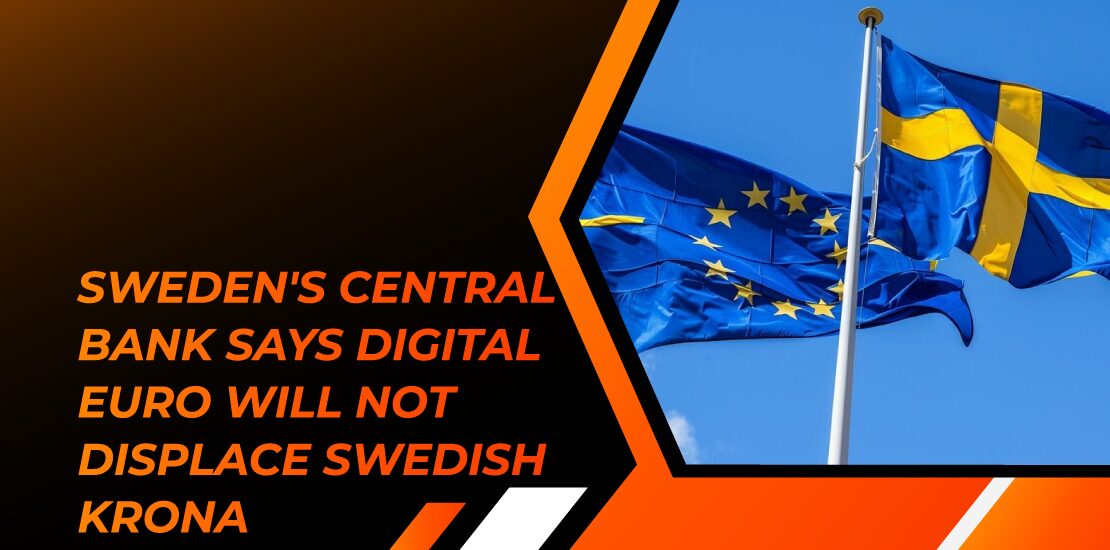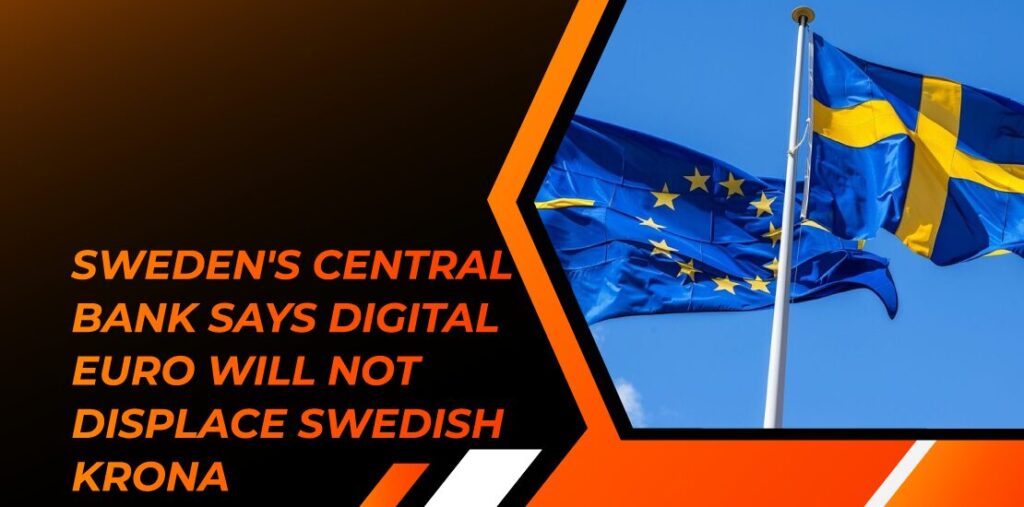- May 15, 2024
- Posted by: [email protected]
- Category:


Sweden’s central bank remains steadfast in its assertion that the digital euro, despite its potential adoption, will not supplant the Swedish krona. In a detailed staff memorandum recently released, the Sveriges Riksbank underscores the strategic advantages and resilience of the Swedish currency within its domestic economic landscape.
While acknowledging the potential benefits of incorporating the digital euro into Sweden’s payment ecosystem, the Riksbank maintains a pragmatic outlook, suggesting that any impact on the Swedish krona would be contained. This assertion is grounded in the proposed limitations on individual holdings of digital euros, which are designed to mitigate any disruptive effects on traditional bank deposits.
The central bank’s confidence in the enduring relevance of the krona is reinforced by the entrenched institutional practices within Sweden. Key transactions, including government payments and salary disbursements, are conducted in Swedish kronor, solidifying its role as the primary medium of exchange. This reliance on the krona for essential financial activities underscores its intrinsic value and resilience within the national economy.
Despite the accessibility of digital euros to Swedish residents, businesses operating within Sweden are required to adhere to existing banking protocols, necessitating the direct transfer of digital euro payments to bank accounts, a practice reflective of established norms in the eurozone.
In the broader context of the European Union’s digital euro initiative, the Riksbank offers a nuanced perspective on the potential ramifications for Sweden’s monetary stability. While acknowledging the significant advantages outlined in the EU’s draft proposal, including enhanced financial inclusion and transactional efficiency, the Riksbank remains vigilant about potential risks, particularly those related to inflationary pressures and currency substitution.
Of particular concern is the possibility that the digital euro could inadvertently undermine confidence in the Swedish krona, leading to a “flight to quality” scenario where individuals and businesses opt for the perceived stability of the euro over the krona. However, the Riksbank asserts that the launch of a digital Swedish krona, or e-krona, could serve as a counterbalance, reinforcing the krona’s position and bolstering confidence in Sweden’s monetary sovereignty.
Moreover, the central bank highlights the synergies between the digital euro and a potential e-krona, suggesting that leveraging shared technological and regulatory frameworks could expedite the implementation of an e-krona and facilitate seamless cross-border transactions.
While acknowledging the potential benefits of the digital euro, Sweden’s central bank remains steadfast in its commitment to preserving the stability and integrity of the Swedish krona within the national financial ecosystem, ensuring its coexistence alongside emerging digital currencies.



